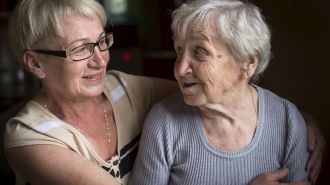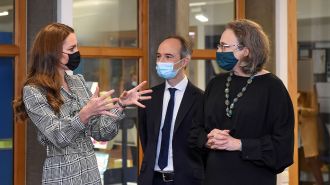- Our studies
- Our research
- Publications and resources
- Data access and training
- About
- News
- Events
- Get in touch
- Join our mailing list
Welcome to our news and blogs section. Here you’ll find the latest developments and insights from across our longitudinal studies.
Growing Up in the 2020s is the country’s first comprehensive long-term study tracking adolescents’ development and educational outcomes following the Covid-19 pandemic.

Children conceived through medically assisted reproduction (MAR) fare better at school but are slightly more likely to have mental health problems by their late teens, finds a new study led by researchers at UCL and the University of Helsinki.

Families across England are set to make history from next week as they join the first new national birth cohort study of babies to be launched in more than two decades, at a time of huge significance for the country as it emerges from the COVID-19 pandemic.

Researchers investigating the links between childhood mental health and people’s later outcomes can now access a wealth of new cohort study data.

Private school pupils in England do not tend to report better mental health or greater life satisfaction in early adulthood than their state-educated peers.

Only children can manage the emotional and psychological demands of caring just as well as those who share duties with siblings, according to UCL researchers.

The onset of menopause before age 45 reduces months spent in work by 9% – around 4 months’ employment – for women during their early 50s, finds new research by the UCL Social Research Institute.

Differences in birth weight and pregnancy term between medically assisted reproduction and naturally conceived children become insignificant once family circumstances are considered, according to new research by the UCL Centre for Longitudinal Studies and the University of Utah.

Women who are the first in their family to graduate from university earn 7% less in their mid-20s compared to female graduates whose parents attended university. In contrast, first generation male graduates tend not to face a similar pay penalty.

Researchers tracking the experiences of the millennial generation can now explore a wider range of questions related to the financial costs and benefits of attending university, thanks to newly linked admin and Next Steps survey data.

Researchers can now search and explore a complete set of variable metadata from all sweeps of Next Steps, the only national longitudinal study tracking the lives of the millennial generation.

Her Royal Highness, The Duchess of Cambridge today visited CLS to learn about the new Children of the 2020s study, and the invaluable contribution the centre’s existing birth cohort studies have made to our understanding of early child development.

More than one in three British adults are suffering from two or more chronic health conditions in middle age, such as recurrent back problems, mental ill-health, high blood pressure, diabetes, and high-risk drinking, according to UCL researchers.
Ryan Bradshaw
Senior Communications Officer
Phone: 020 7612 6516
Email: r.bradshaw@ucl.ac.uk